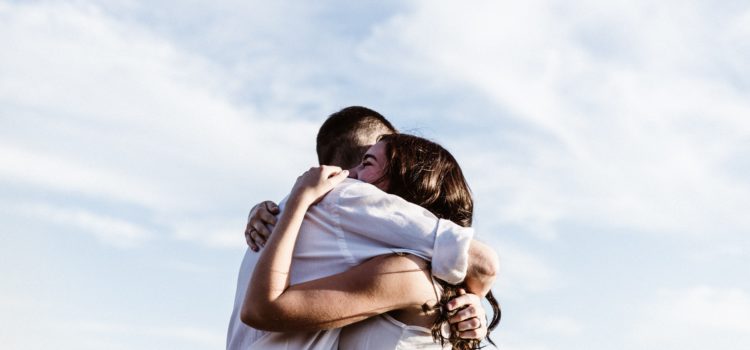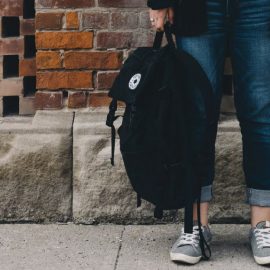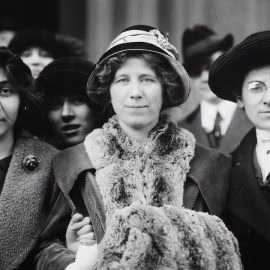

This article is an excerpt from the Shortform book guide to "Braiding Sweetgrass" by Robin Wall Kimmerer. Shortform has the world's best summaries and analyses of books you should be reading.
Like this article? Sign up for a free trial here.
How do you show care? Do other life forms deserve care like humans?
In Braiding Sweetgrass, Robin Wall Kimmerer explains the benefits of mutual care, such as a flourishing environment. If you want to experience these benefits, she recommends encouraging mutual care with other people and other life forms.
Read below to learn how to show care in your community.
Express Gratitude
One way to learn how to show care is to express your gratitude. Expressing gratitude reminds us to treat the things we’re grateful for with respect and care. Gratitude rituals are also a way to hold each other accountable for stated values. For example, to reinforce mutual care, you could take a moment before you start eating a meal to say thank you to the plants, animals, and humans who provided the meal.
(Shortform note: This strategy relates back to the Indigenous ceremonies that reinforce mutual care: They are spiritually meaningful and sometimes incorporate practical elements. In The Power of Ritual, Casper ter Kuile talks about how to turn simple activities into spiritually meaningful rituals by setting an intention before you begin, engaging your five senses to help you stay present, and practicing the ritual repetitively. These steps could transform ritual expressions of gratitude into a lived practice of mutual care.)
Tell Stories
Because cultural lore is an indicator of worldviews and priorities, sharing stories related to mutual care can guide us in healing our relationship with the natural world. Storytelling can inspire people to practice mutual care, caution people against selfish behavior that contradicts mutual care, and teach community members about why mutual care is important. Kimmerer notes that the Indigenous mythologies specifically described in the book are meant to be shared, and you can use the gift of language to tell your own stories as well.
(Shortform note: In Sapiens, Yuval Noah Harari discusses the historical power of storytelling to motivate and change human behavior. Harari describes how the cognitive ability to tell stories enabled early humans to cooperate and create more advanced societies. Unlike their predecessors, Homo sapiens created “collective fictions” that provided the foundation for religion and ethics. This form of storytelling motivated people to cooperate on a mass scale.)
Steward the Land
Working the land is a straightforward way to practice mutual care through direct interaction. This could include gardening, removing invasive plants, or planting trees to restore a cleared forest. Making a garden benefits you and many other beings by providing food for pollinators, beautification of a space, an abundance of fresh food for your community, habitat for insects, increased soil health, and psychological satisfaction and enjoyment.
(Shortform note: Research confirms that gardening has a positive impact on our brain chemistry. Studies show that the benefits of gardening include increased happiness, memory retention, creativity, and self-esteem, and decreased effects of anxiety, depression, PTSD, and dementia.)
Advocate for the Land
Advocating to protect or restore land is another strategy for practicing mutual care. You can raise awareness about conservation needs in cases where natural spaces are at risk of losing biodiversity and habitat due to human development. You could also speak to your political representatives about cleaning up industrial waste sites to mitigate further damage.
(Shortform note: Kimmerer does not go into specific recommendations for advocacy, but there are many organizations to join, and there are online resources available about implementing effective advocacy campaigns. One guide recommends starting with in-depth research on the topic and surrounding legal issues, followed by a planning stage, the implementation of deliverables, measuring progress, and reflecting on and revising your strategy.)
Use Resources Mindfully
Practicing mindfulness about resources encourages mutual care by influencing the way you invest your money and fostering gratitude. Try buying things that minimize harm to others and the environment. For example, buy local, organic produce that required fewer fossil fuels to get to you (because it wasn’t transported from far away by industrial vehicles) and did not have contact with toxic chemicals.
Another strategy for being mindful is to mentally trace your items back to their original living form so that you appreciate the lives given to make those items. For example, you could acknowledge the trees that a wooden bed frame and coffee table came from.
(Shortform note: Marie Kondo argues in The Life-Changing Magic of Tidying Up that actively appreciating your material possessions increases their longevity and usefulness, linking the recommendation for resource mindfulness to the strategy of expressing gratitude. Kondo’s definition of “active appreciation” includes greeting your house and saying thank you to the items you use. These habits contribute to mutual care with the environment because if your items last longer, you can purchase fewer items and reduce your consumption of natural resources.)
Give Generously
Lastly, giving generously to other people and non-human beings is a way to practice mutual care in your community. Giving a gift contributes to the well-being of another person, and Kimmerer notes that the gift may also inspire the recipient to share with others in return. In the context of non-human beings, gift-giving is a way to support the ecosystem that supports you. Gift-giving could include things like hosting a dinner for friends, volunteering at a community clean-up, sharing excess food, applying mulch to a tree, or planting a shrub with berries that are edible to birds and other critters.
(Shortorm note: In addition to helping the recipient of the gift, evidence suggests that giving gifts has psychological benefits for the giver as well. One study showed that participants were significantly happier when they spent more money on others compared to themselves. In addition, the proportion of money spent on others was more correlated to happiness than the actual amount of money people received. This research reinforces the inherent mutual aspect of giving.)

———End of Preview———
Like what you just read? Read the rest of the world's best book summary and analysis of Robin Wall Kimmerer's "Braiding Sweetgrass" at Shortform.
Here's what you'll find in our full Braiding Sweetgrass summary:
- What plants, Indigenous worldviews, and science can teach us about restoring balance
- Why we must recognize our interdependence on others and the environment
- Strategies to help you practice mutual care in your own life






